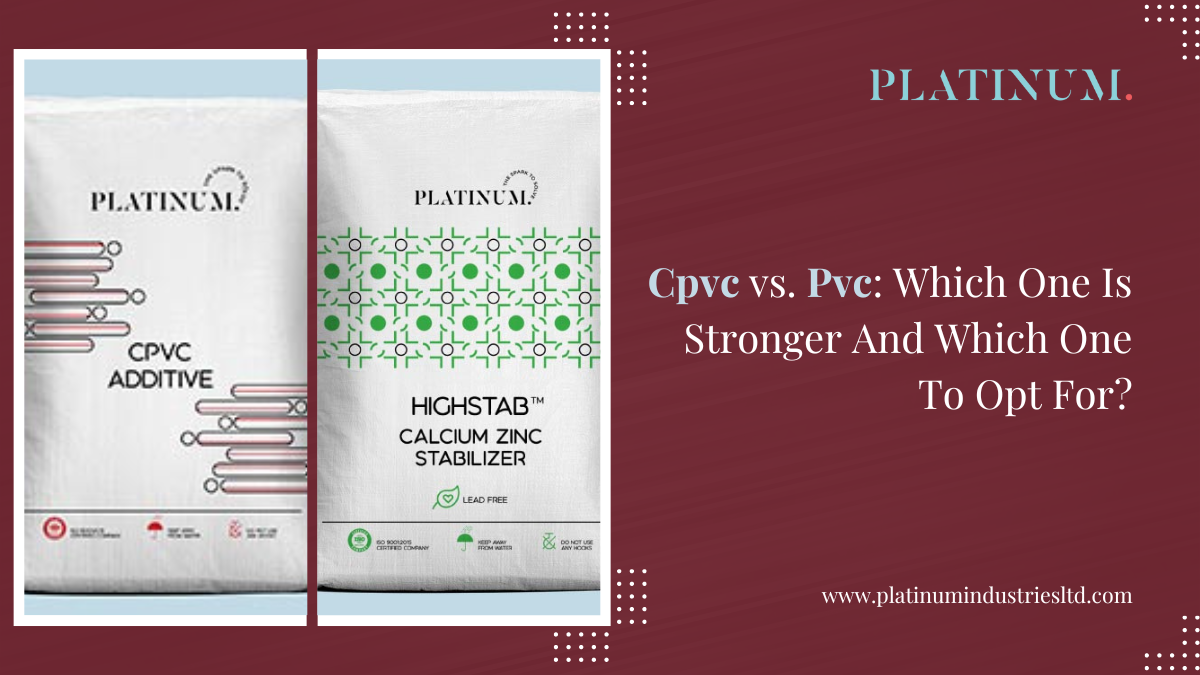When it comes to selecting the right material for plumbing and piping applications, CPVC (Chlorinated Polyvinyl Chloride) and PVC (Polyvinyl Chloride) are often the top choices. Both materials have their merits, but understanding their respective strengths is crucial in making the right choice.
Let’s delve into the CPVC vs. PVC debate to determine which one is stronger and which is the optimal choice for your needs.
CPVC: Chlorinated Polyvinyl Chloride
CPVC is a thermoplastic made by chlorinating PVC resin. This chlorination process enhances its heat resistance and chemical durability.
Strengths:
- High-Temperature Tolerance: CPVC exhibits excellent resistance to high temperatures, making it suitable for both hot and cold water systems. It can withstand temperatures up to 200°F (93°C) or more, whereas PVC starts to soften at much lower temperatures.
- Chemical Resistance: CPVC is highly resistant to a wide range of chemicals, acids, and bases, making it a preferred choice in industrial applications where corrosion is a concern.
- Lower Thermal Expansion: CPVC has a lower coefficient of thermal expansion compared to PVC stabilizer, which means it experiences minimal dimensional changes with temperature fluctuations.
PVC: Polyvinyl Chloride
PVC is a widely used thermoplastic polymer known for its versatility and cost-effectiveness.
Strengths:
- Cost-Efficiency: PVC is generally more affordable than CPVC compound, making it an attractive option for budget-conscious projects.
- Lightweight: PVC pipes are lightweight and easy to handle, making installation a simpler process compared to heavier alternatives.
- Non-Toxic: PVC is non-toxic and widely used in potable water systems, irrigation, and drainage applications.
- Insulating Properties: PVC provides good electrical insulation properties, which is essential in electrical conduit applications.
Choosing the Right Material: CPVC vs. PVC
The choice between CPVC and PVC depends on the specific requirements of your project:
- If you need a piping system for high-temperature applications: CPVC is the clear winner due to its exceptional heat resistance.
- For projects requiring chemical resistance: CPVC is the better choice, as due to the CPVC compound formulation it can withstand a broader range of chemicals.
- On a tight budget: PVC is the cost-effective option for most plumbing and drainage applications.
- When ease of installation is crucial: PVC’s lightweight nature and ease of handling make it a suitable choice for straightforward installations.
- For potable water systems: Both CPVC and PVC are suitable, but PVC is commonly used due to its non-toxic properties.
Ultimately, the decision between CPVC and PVC hinges on the specific demands of your project. Being one of the leading CPVC compound manufacturer and PVC stabilizer manufacturer in this field, Platinum Industries understands the changing demands of businesses and has the capabilities to not only guide you in making the right choice but also provide you with the best quality materials. To know more, contact us today!

